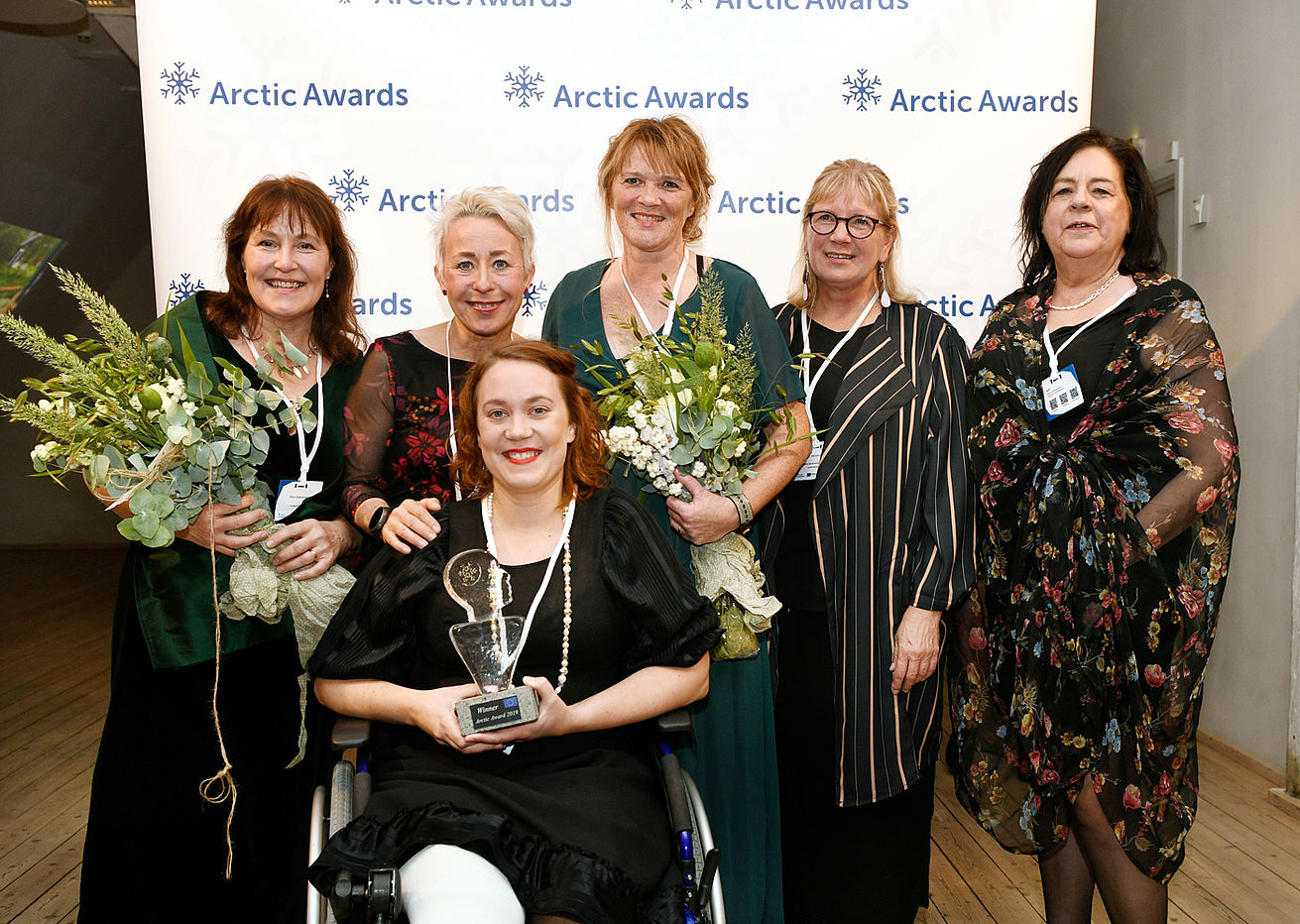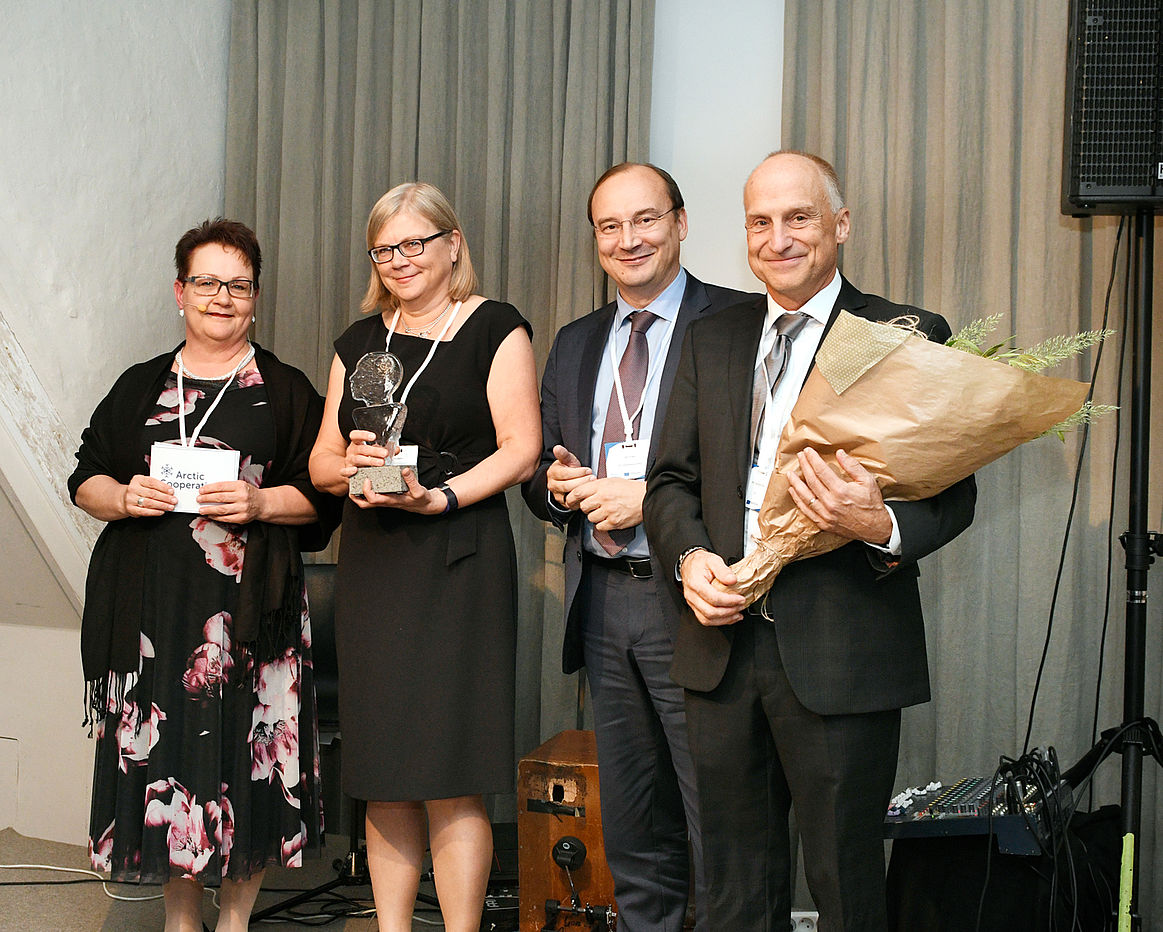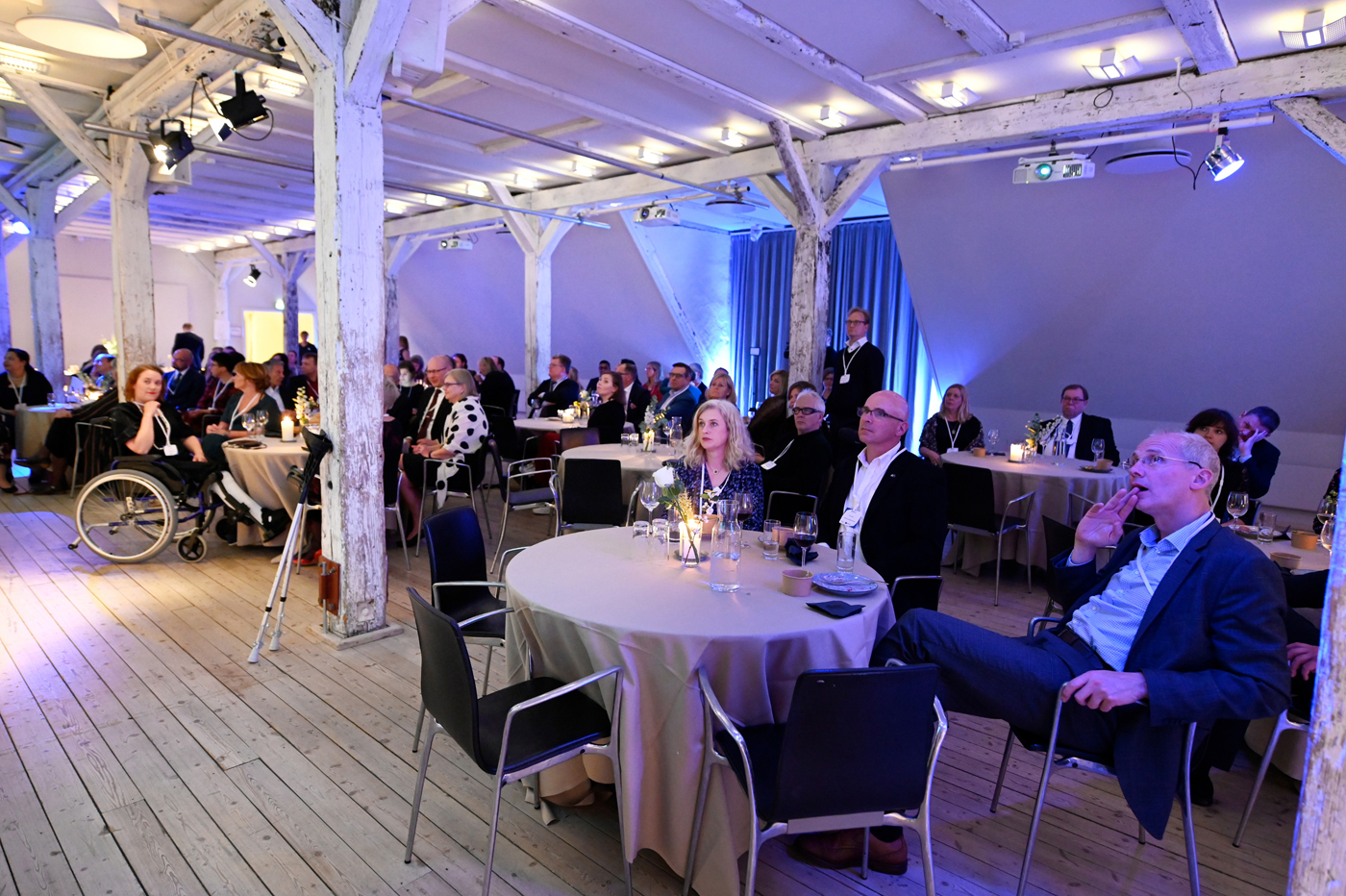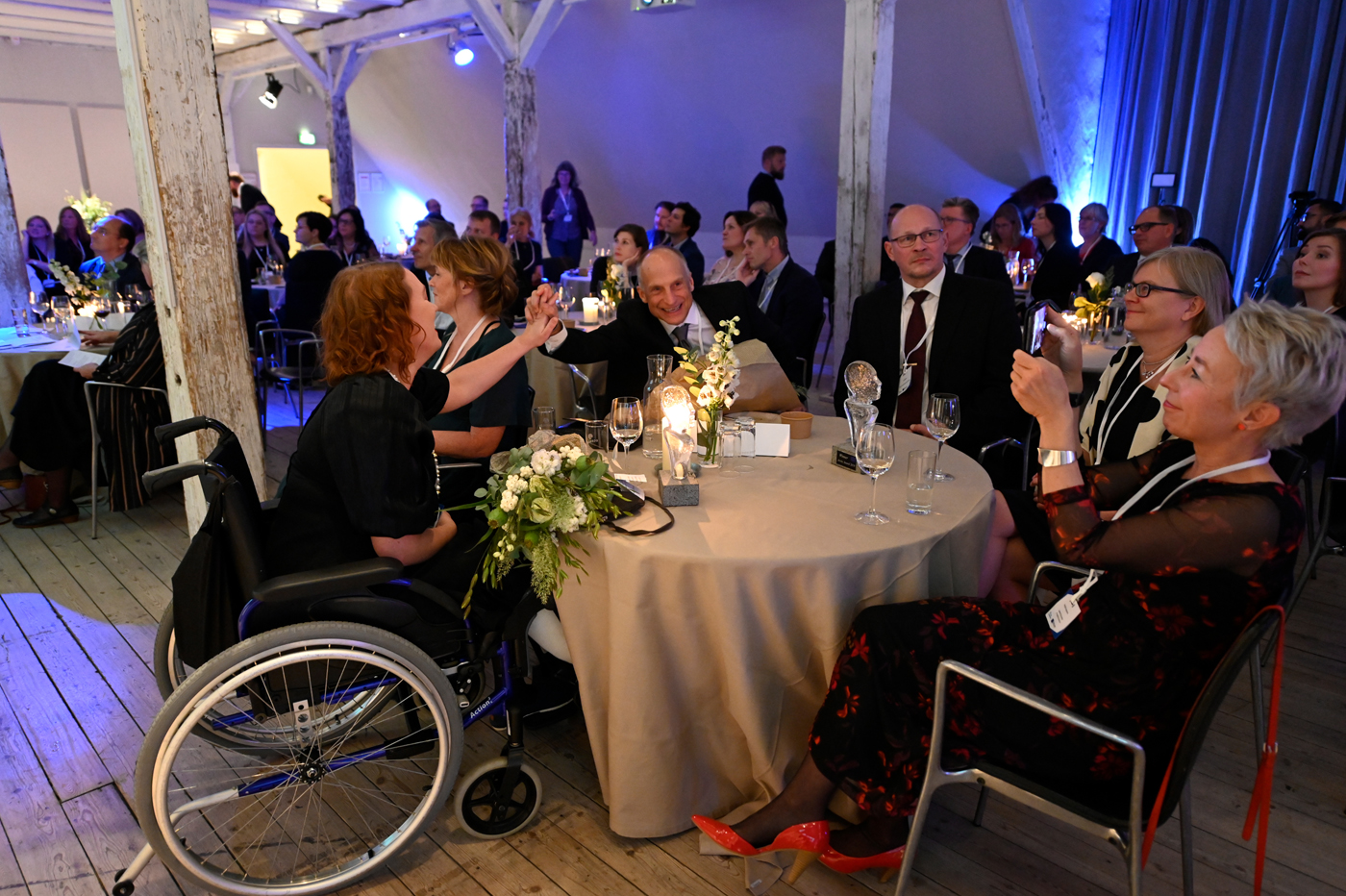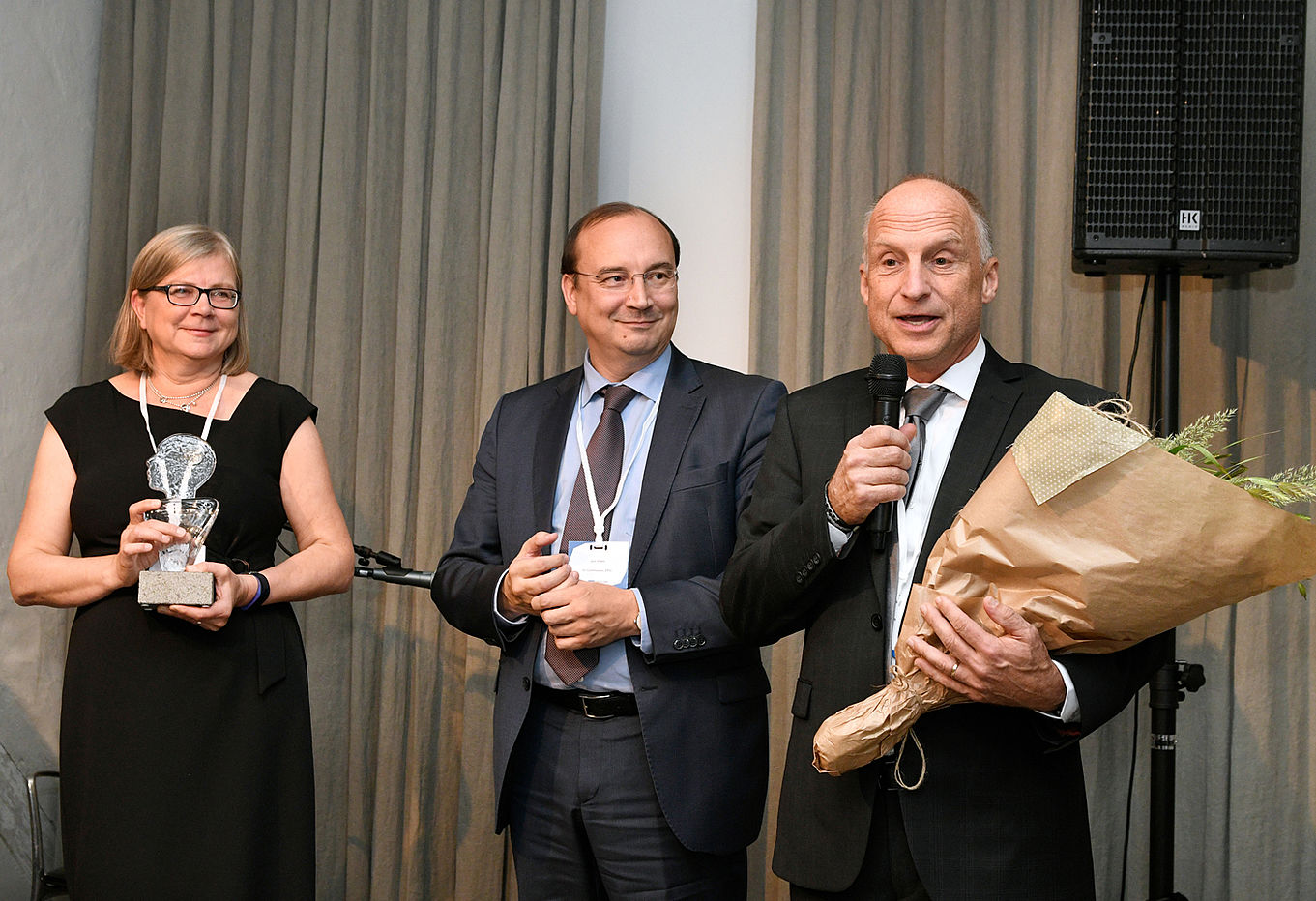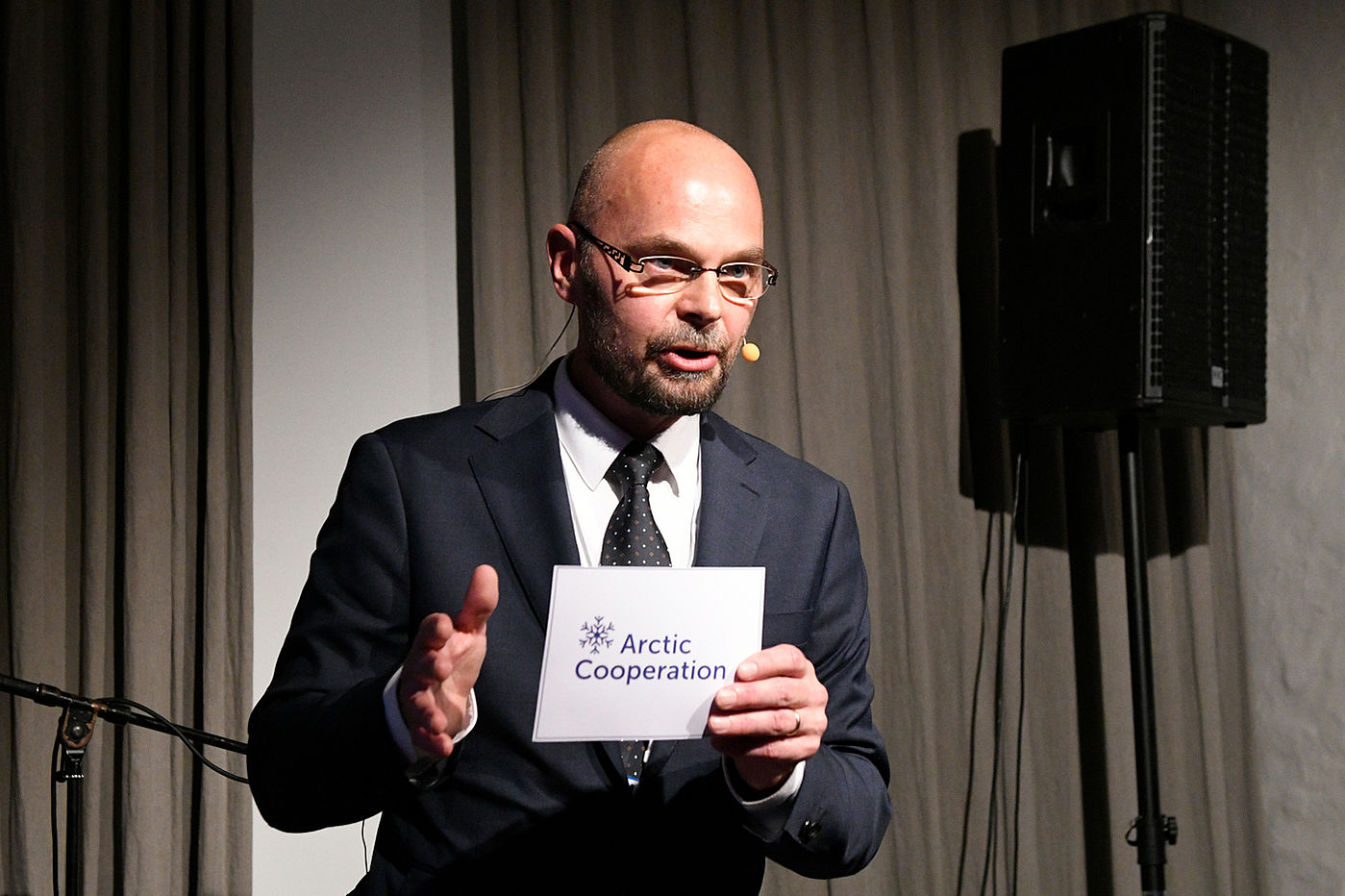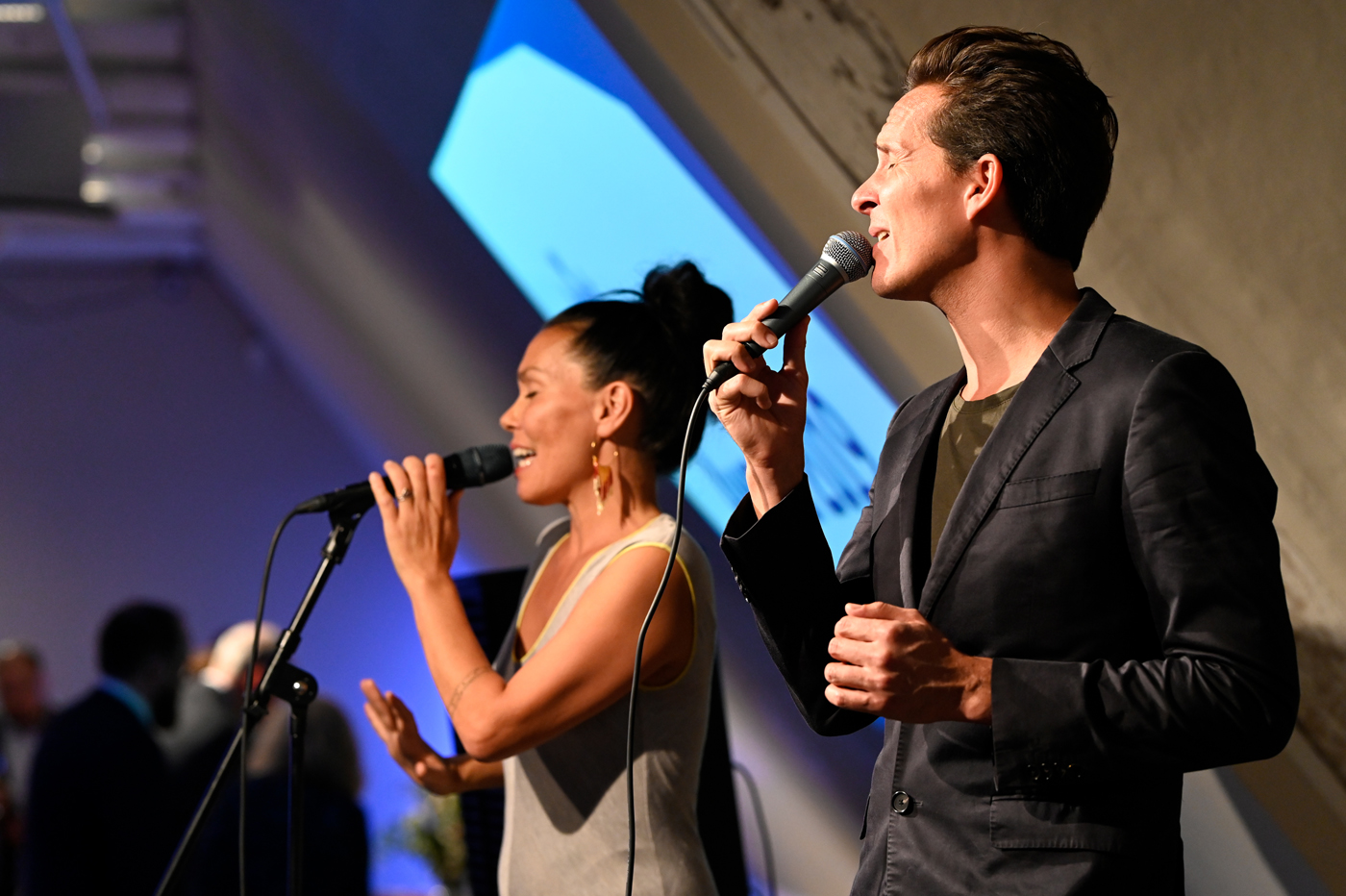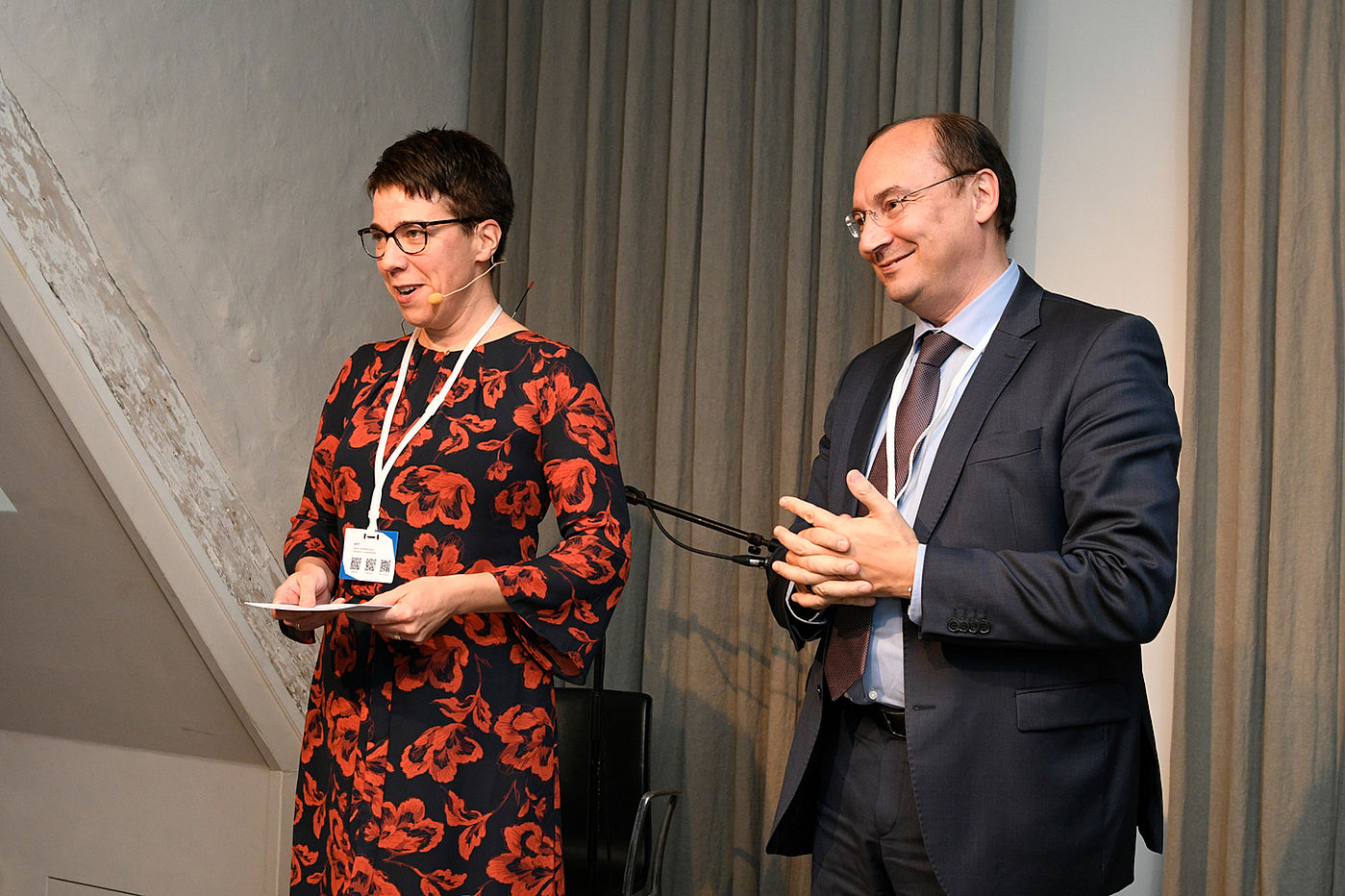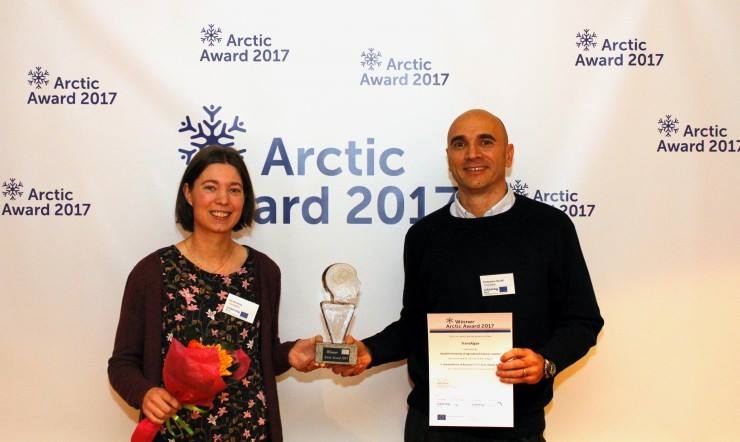THE ARCTIC AWARDS
The Arctic Awards is an annual project competition designed to highlight exceptional projects focusing on topics of particular relevance to the Arctic area. All the projects funded by five Arctic programmes - Northern Periphery & Arctic Programme, Interreg Botnia – Atlantica, Interreg Nord, Kolarctic CBC programmes, and Karelia CBC programme, are welcomed to participate. The categories of the Arctic Award competition rotate yearly. Based on the decision of the Judging Panel made out of representatives from all five Arctic programmes, the winners will be chosen.
What is the objective of the Arctic Awards?
The objective of the Arctic Award is to identify good practice, promote Arctic cross- border collaboration, and raise awareness among projects of each other. The awards are to highlight innovative projects with a clear Arctic dimension, which are viewed as inspirational in their participating regions as well as being seen as creating real, measurable impacts on the ground, and being of direct benefit to Arctic Communities.
Arctic Awards 2022
This year's competition is limited to projects from the 5 Arctic Cooperation programmes, who distinguished for the quality of their achievements and the effectiveness of their engagement strategy. Two projects have been invited from each programmes. All 10 projects have been promoted on the Arctic Cooperation social media channels with the #ArcticAwards2022.
An impartial jury composed of programme representatives and two VIP members: Ambassador Jari Vilén, Chair of the Committee of Senior Officials of the Barents Euro-Arctic Council (CSO), and Ms Tinna Hallgrímsdóttir, Chair of the Icelandic Youth Environmental Association, selected the 3 finalists.
The winner of the Award has been chosen by a public jury through an online voting campaign run on social media during December 2022 and January 2023. The winner has been announced at the Arctic Award ceremony in Oulu, on 25th January 2023 after each finalist pitched their project to the audience.
WasteLess Karelias - Arctic Awards 2022 Winner
The project has established waste collection and sorting facilities in villages. Before the project, in the Finnish villages distances to waste collection and sorting facilities were long, and the Russian villages practically had no proper facilities in place.
Over the span of the project 11 collection points for mixed and/or sorted waste have been built by WasteLess. The project has done Capacity building to increase waste management skills and possibilities of local residents and village administrations, and carried out waste related education in local schools.
All activities have directly benefited the residents in the region as they have directly improved their living environments. Activities have further improved the ability of residents to extend the project messages to other places, and thus multiply the results.
The jury found the grassroot work of this project very impressive. Besides the number of people involved, more than 3.000, the diversity of the target group was a striking factor and decisive for its success. Different types of events were organised to suit the different audience and leave a (hopefully) permanent change in attitude and behaviours. Trash-art festival, clean-ups, village evenings, jare just some examples of the solutions found to improve the living environment of local residents. In addition, the participation of school children makes it also an even more valuable project with a lasting legacy.
Visit the project website or watch a video about WasteLess Karelias.
Arctic Awards 2022 Finalists
GRUDE - Green Rural Economy
The project has collected, refined and shared knowledge about green economy and resource efficiency in order to create sustainable Arctic societies.
Green Economy is a great opportunity for Northern sparsely populated regions to benefit from local natural resources and inhabitants competence. The actual beneficiaries of the green economy are municipalities, businesses and local inhabitants.
The project has arranged over 60 events, both regional and international, with a wide variety of circular economy-related themes, targeted at different audiences: public sector and decision makers, local SMEs, and residents. All activities have directly benefited the residents, by the positive development of their municipalities and surrounding businesses.
Visit the project website or watch the interview with Janne Mustonen, a reindeer herder from the Finnish Lapland.
Finalist #3 - FAIR Finding innovations to Accelerate the Implementation of electric Regional aviation.
The project has promoted the early implementation of electric aviation in the Kvarken-Nordland region.
This is an Arctic region spanning over mountains, inland and sea and it is a region that shares many traits with other parts of the Arctic, such as long distances between population centres and poor existing transport alternatives.
This new technology can thus connect the region in an efficient way and enable further cooperation within the Arctic region and across borders. New electric air routes can make life easier for the people living in the Arctic region – fast sustainable traveling makes it possible to commute to more work opportunities and to access more services and destinations.
What could regional electric air travel sound like? Visit the project website or board the plane yourself as you go on a trip in the future: from your home in Lycksele (SE) to the airport in Vaasa (FI) in the year 2040.
Previous editions
The Arctic Award took a break in 2021 to carry out an evaluation.
The gathered feedback from previous participants and winners was very encouraging, showing that receiving the award did make a difference. First and foremost, in terms of appreciation for the work done, which increases the partners’ confidence to continue the work started.
The award also increased the visibility and the reputation of the project and partners, who then became more attractive to other partnerships and for other EU grants. However, feedback suggested it was time to upgrade the approach and focus more on the project’s ability to reach beyond the Interreg circle of projects and programmes, and show concretely how cooperationcan have an impact on citizens of the Arctic regions.
In 2020 the world had to adapt to a pandemic. And so did the Arctic Awards, but we don’t want to miss the opportunity to celebrate our winners: two projects who make a difference for the people who live in the Arctic. For this reason, we celebrated them, well... virtually.
The two winners were announced with a video on Facebook, at the peak of a social media campaign featuring all candidates of the 2020 Arctic Awards edition.
The winners of the Arctic Award 2020 edition are: BRIDGE Barents Region Initiative for Developing Growth and Employability, in the category Arctic Entrepreneurial Spirit, funded by Kolarctic ENI CBC programme. And the project Future CleanTech Solutions funded by Interreg Botnia-Atlantica, in the category "Overcoming Critical Mass".
In the category “Arctic Entrepreneurial Spirit - boosting young entrepreneurs’ abilities”, BRIDGE has demonstrated:
- focus on enhancing young people’s entrepreneurial skills and employability, as well as creating networks between potential employees and employers.
- the ability to tackle into relevant day-to-day demands of both universities and SMEs
- concrete potential to produce a permanent impact on the practices of the participating higher education institutions and the SMEs, i.e.concrete improvement in employment rates and quality of the workforce.
In the category “Overcoming Critical Mass”, Future CleanTech Solutions has demonstrated:
- a concrete cooperation model innovating CleanTech businesses in the Kwarken region, as well as taking into account natural resources in the regions
- clustering, promotion of clean-tech solutions and creation of vertical links between Arctic companies which answer to the needs of sparsely populated areas really well
- an approach that is agile and relatively easy to scale and deploy in other parts of Arctic regions.
Watch the video.
The Arctic Awards paused during 2021, in order to evaluate the experience and learn from the past editions.
The winners of the Arctic Award 2019 were announced during a festive evening reception in connection with the Arctic Cooperation Conference in Copenhagen in September 2019. The awards were handed out by Ambassador Jari Vilén, Senior Advisor in Arctic policy matters at the European Political Strategy Centre (EPSC) of the European Commission.This year, for the first time, the Arctic Award ceremony has been a part of the Arctic Cooperation Conference – “What can cooperation do for Arctic” held in Copenhagen on 17th to 18th September 2019.
The winners of the Arctic Awards 2019 are Our Stories – The Business of using storytelling to draw people in (Interreg NORD) who won the project category "Arctic Entrepreneurial Spirit" and BuSK - Building shared knowledge capital to support natural resource governance in the northern periphery (Northern Periphery and Arctic) who won the project category "Sustainable Use of Resources".
Our stories demonstrated that it has direct benefits for the people living in Arctic regions, who are directly involved in the design of the solutions. It has also shown successful involvement of underrepresented groups, such as women, young people and indigenous peoples. The project has also been successful in energizing and innovating the Northern Lights Route, raising curiosity, and using common history to bring out the Arctic entrepreneurial spirit.
Busk has been awarded for showing direct benefits for the people living in Arctic regions. It has successfully disseminated best practice knowledge, and increased local acceptance and participation mechanisms in different nature-based industries, as well as it has combined indigenous and local knowledge into land use planning.
The 2018 Arctic Awards were launched in May 2018, with the themes Arctic Entrepreneurial Spirit, and Cold Climate Opportunities. This time, the award ceremony took place during a reception following the European Week seminar Sustainable development of the Arctic region to the benefit of all of at Scotland House, Brussels.
The winner in category "Arctic Entrepreneurial Spirit", was Rural Youth Entrepreneurship - RYE Connect (NPA) while the winner in category "Cold Climate Opportunities", was Wind Centre of Excellence - WindCoE (Interreg Botnia-Atlantica).
RYE Connect demonstrated excellence in promoting innovative thinking that inspires young people to create unique business opportunities across Northern Europe and the Arctic. Through transnational collaboration and networking, RYE Connect develops better business opportunities, services and solutions for young entrepreneurs aged 16 to 30. RYE Connect contributes in a clear and visionary way to the Arctic Award main criteria: innovation, impact and focus. The project aims to bring together remote regions, and bridge the gap offering spirited business support tools innovating the youth to become one of the next generation of entrepreneurs.The project has shown that entrepreneurial spirit in the Arctic is thriving, and that better results can be achieved through cooperation.
WindCoE has established a competence center within wind power in a cold climate. While much of the project content focused on research concerned with wind energy issues, the overarching goal was to create a long lasting center of excellence, bringing together industry, society and government to a platform where more constructive discussions regarding wind power could take place. By improving the conditions for this societal debate the project intends to improve the prospects for the development of the wind energy industry in the region.
In August, the first Arctic Awards project competition was launched. The 2017 categories were "Overcoming Critical Mass", and "Sustainable Use of Resources". In total, 20 projects from 3 programmes applied, and one winner was selected in each category. The winner in category “Overcoming critical mass” was Visit Arctic Europe (Interreg Nord) and the winner in category “Sustainable use of resources” was Transalgae (Botnia Atlantica).
Visit Arctic Europe made a special effort to involve people in the design of the solutions(s) and demonstrates excellence in promoting its’ results to the relevant target audiences. It involves SMEs and stakeholders from Sweden, Finland and Norway, to combine the Arctic area’s strengths and resources to meet the increased competition within the tourism industry.
Translage demonstrated excellence in promoting its (expected) results to the relevant target audiences. There is a need for cost effective and sustainable ways to clean waste streams from different sources. Algae are not used in the Arctic region for this purpose, and the project will contribute to increase the knowledge of algae and develop the algae sector as a part of the bio economy.
Back to Arctic Cooperation

